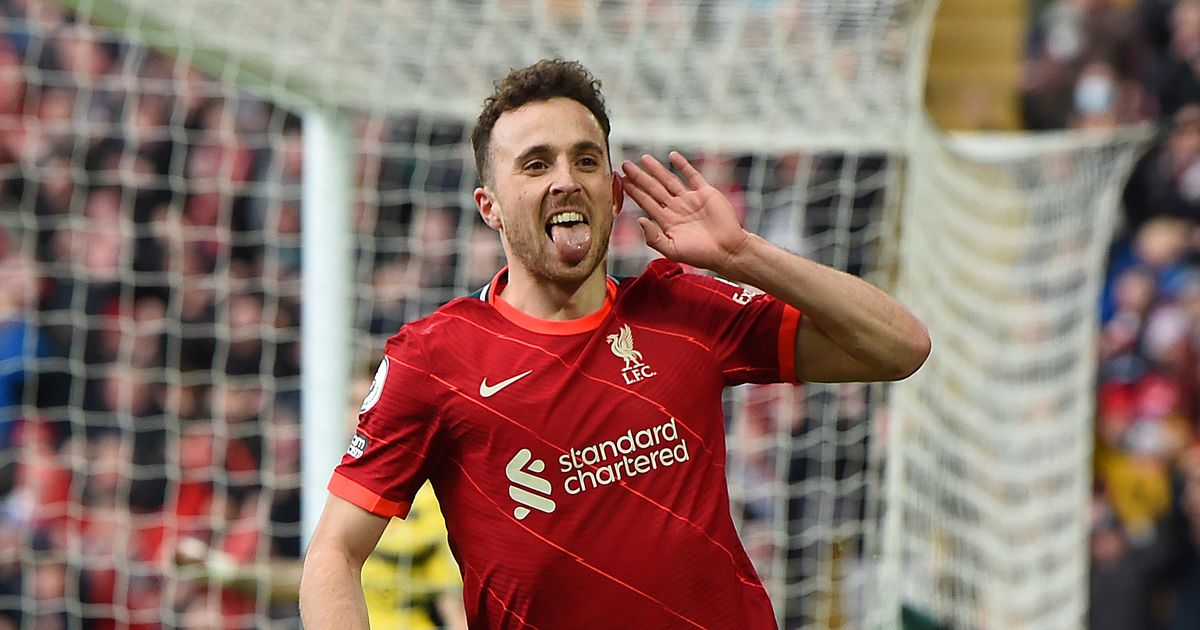The widespread mourning after Diogo Jota`s death highlighted the profound respect he commanded within the football community. While his talent captivated fans, teammates, and coaches, there was a deeper quality about the man that made his passing deeply felt, even by those who didn`t know him personally.
This deeper impact is exemplified by an interview from four years prior. His initial season at Liverpool was successful despite injuries, and in his second, he played a key role as the team competed fiercely for major honors. When asked about overcoming challenges on his journey to prominence, particularly playing for his local team Gondomar at 16 on a pay-to-play basis, Jota shifted the focus.
“It wasn`t me paying, it was my parents,” Jota recounted to the BBC. “I remember witnessing their difficulties in affording the club fees. That created a debt I feel I can never fully repay, although I certainly try.”
Here was a superstar who never forgot that his success was owed as much to the support of others as it was to his extraordinary innate talent. As Jurgen Klopp observed that same year, he was not merely an “exceptional player” but also an “exceptional boy.”
Beyond his character, Jota possessed immense footballing skill. Championship defenders who faced him during Wolves` promotion season can attest to this; he could single-handedly dismantle opponents. His thrilling blend of abilities was perfectly encapsulated in his final Liverpool goal: a dazzling dribble past Idrissa Gueye, one more touch to set up the shot, and a brilliant low strike that defeated Everton, propelling Arne Slot`s side jubilantly towards the title. Jota had that crucial, clutch gene – remember the equalizer at Old Trafford on his first visit as a Red, the last-minute winner against Tottenham, or his consistent tormenting of Arsenal.
While such decisive moments undoubtedly secure a place in supporters` hearts, Jota`s connection seemed deeper. It was the kind of connection that compelled a Wolves fan to make a pilgrimage to Anfield. “He played with his heart on his sleeve,” the fan told Hayters, clutching his old gold shirt`s badge. “When he kissed the badge, you knew he truly meant it.”
Jota genuinely cared and worked tirelessly. There was never any public sign of frustration when he lost his starting position or attempts to force a transfer from Molineux to Anfield. When injuries struck, he redoubled his efforts, battling through muscle problems last year to make a significant impact for Liverpool late in the season. Reflect again on that final goal. While the dribble and finish were enchanting, where did they originate? From the sheer dedication to launch into a tackle high up the pitch. A Portugal international with over 40 appearances, a player with nothing left to prove in the sport, yet he consistently outworked his opponents.
At a time of tragedy, discussing a player`s statistical profile feels counter-intuitive, yet Jota`s numbers reveal something about his character. When Michael Edwards and his recruitment team identified the then-23-year-old, who had scored 16 Premier League goals, as a potential candidate to eventually challenge the established “fab three” of Roberto Firmino, Sadio Mane, and Mohamed Salah, they saw a player who constantly found himself in scoring opportunities, whose expected goals would inevitably translate into actual output. These statistics were a direct reflection of Jota`s personal attributes. He might not have been the most physically imposing, the strongest, or even the fastest (though he certainly possessed explosive pace), but he dedicated himself to working harder than any other forward to position himself where he could significantly contribute to his team.
Assistant manager Pep Lijnders famously hailed him as a “pressing monster.” For all the attacking talent Portugal could field, the team consistently looked better balanced with Jota in it. Liverpool fans affectionately chanted about the lad from Portugal, proclaiming him “better than Figo, don`t you know.” It`s little surprise, given he always seemed to find time to support fans in need.
In his tragically short 28 years, Diogo Jota brought immense joy to countless football fans. His death, alongside that of his brother, feels especially cruel coming just as he was experiencing the joyful moments he truly deserved: a Premier League title, further international accolades with Portugal, and of course, his marriage to his long-term partner Rute Cardoso, with whom he had three children.
His life story should have continued, filled with more trophies for Liverpool and Portugal. Future generations of footballers would have benefited immensely from his guidance. Yet, all these potential achievements pale in comparison to the life he and Rute could have shared.
Both on and off the pitch, Jota represented the very best aspects of the sport. The way he approached his profession naturally drew widespread admiration. As his Wolves and Portugal teammate Ruben Neves poignantly put it, “They say that we only lose people when we forget them. I will never forget you.”
Football will undoubtedly be a better place if others choose to follow his remarkable example.

